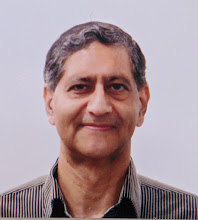This April 12 WSJ article "Medical Schools Can't Keep Up" quotes the AAMC as saying the US facing a shortage of 150,000 doctors in 15 years. Actually, we're 350,000 short right now as compared to OECD averages,with the problem worsening over time. Steps by the government to rectify this in the short and the long term as outlined in my September 11, 2010 post are straightforward, but no one seems bothered.
This doctor scarcity is not accidental. Apart from causing hardship to an under-served populace it is the biggest cause of US health care overpricing per my Feb. 10 post. I see parallels between Osama Bin Laden hidden away in Pakistan and this health care situation in the US.
This doctor scarcity is not accidental. Apart from causing hardship to an under-served populace it is the biggest cause of US health care overpricing per my Feb. 10 post. I see parallels between Osama Bin Laden hidden away in Pakistan and this health care situation in the US.
- OBL hid "in plain sight" under the nose of the Pakistan government for years. Ditto for managed US doctor shortages that have escaped US government and media attention for decades.
- Pakistan and its ISI was either colluding with OBL in keeping him hidden, or amazingly incompetent. Given the location and size of the hideout it's probably the former but we don't know for sure. Either way it shatters notions of Pakistan being a satisfactory partner in combating terror. The US government and lawmakers are either deliberately allowing doctor scarcities, or are amazingly ignorant of it. Given that they inexplicably legislated caps on funding medical residencies to make an awful situation even worse, it's probably the former but we don't know for sure. Either way they have seriously undermined public interest.
- Pakistan and the ISI selectively target some terrorist networks like the Pakistan Taliban while ignoring or shielding arguably bigger ones like the Afghan Taliban and Haqqani network that further their interests. US lawmakers and health experts espouse health remedies like use of electronic health records, prevention and wellness measures, anti obesity campaigns and (for Paul Ryan) shifting costs to consumers. But they avoid exposing and moving against the biggest sources of gain for their benefactors - doctor scarcity and hospital market ("monopoly") power that jack up prices and overall costs.
- After OBL's killing and the resultant questions about Pakistanis' role in his hiding in their midst for so long, Pakistan indignantly asserted that it aided the capture of more terrorists than any other country. It's just that they "overlooked" the worst and biggest ones. In the US there's no dearth of organizations, publications, expert opinions and articles on how to improve health or health care. Every major magazine or newspaper has a section on "health." Government bodies like the CMS, CDC and CBO have millions of pages of health data. Notably absent is material comparing payments for procedures, medical fees to doctors, true doctor earnings, drug prices (particularly for generics where no royalties or patents are involved) in the US with other countries. CMS with its (and perhaps IRS) vast databases can task a handful of its analysts to compile and disseminate all such information within a week if they so want. Instead, even the little data they put out on payments for some procedures was horribly flawed and (no surprise) heavily understated.
- Ongoing terrorism can be good business for Pakistan. Pakistan gains in military and financial aid so long as the threat of terrorism against the West continues in this region. Excess earnings by the health industry can be good business for US politicians and health experts. Even a fraction of a percent of these can be plowed back for substantial payoffs and political contributions.
- Even those in Pakistani establishment who genuinely want to combat all terrorism can be pressured by public sentiment and risk to their well being and careers, or seduced by blandishments to help some groups. The same way, US health experts avoid exposing overpricing and other key aspects behind excess expenditures, because of the way medical groups can control their careers, funding and research grants. The editorial boards of health publications are dominated by doctors so even pure academics telling inconvenient truths can suffer in their "publish or perish" world. And public health officials are aware of lucrative post-government opportunities (as in Thomas Scully's case) so long as they serve and shield their industry well.
- Bin Laden, terror networks and Mideast wars have caused trauma, suffering and deep financial loss to the US. There were almost 3,000 deaths on September 11, '01 and another 6,000 military deaths (600 annually) in subsequent wars costing about $100 billion per year. Doctor shortages and overpriced US health care impose suffering and financial burden that is far higher. The excess expenditure compared to peer economies is already over $1 trillion a year and getting worse. And 45.000 die annually due to inadequate care and lack of insurance.
